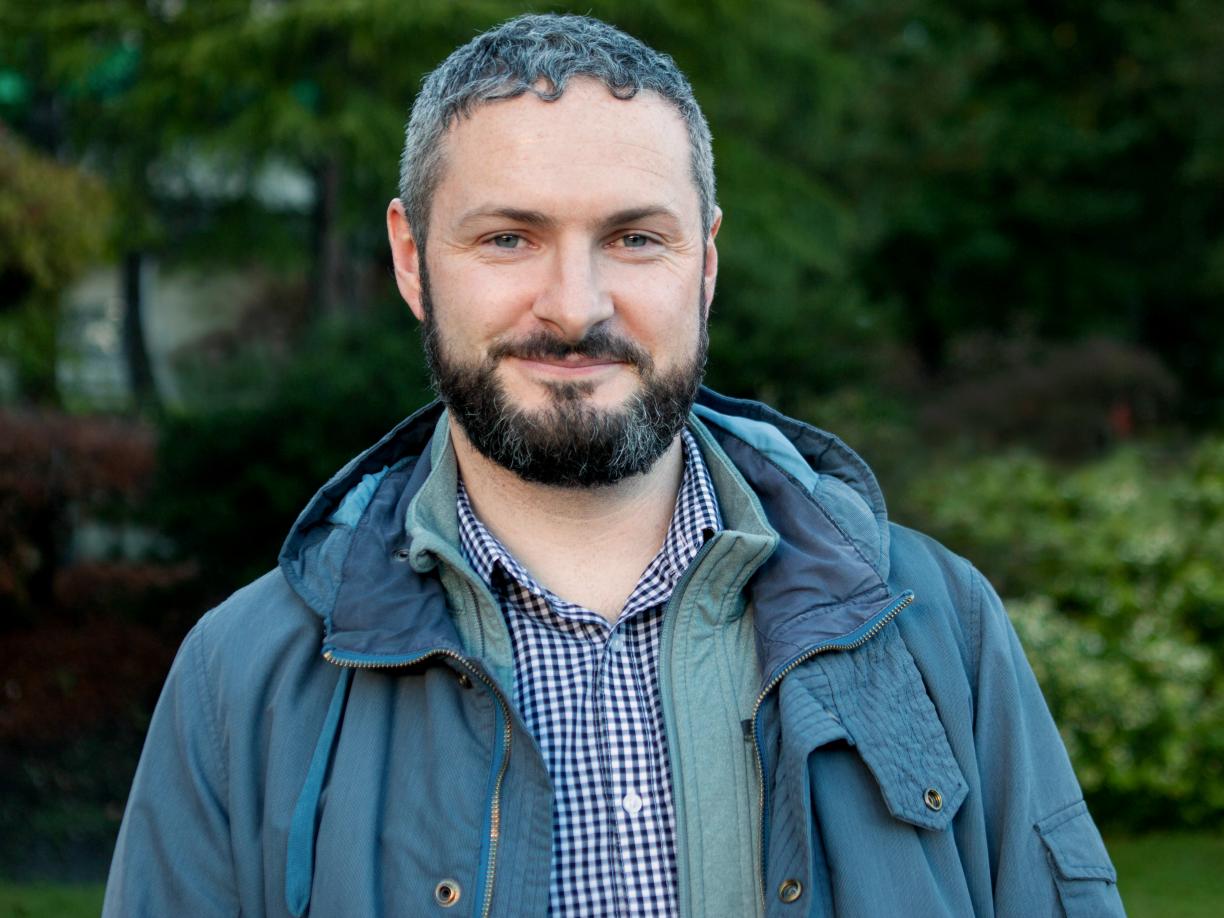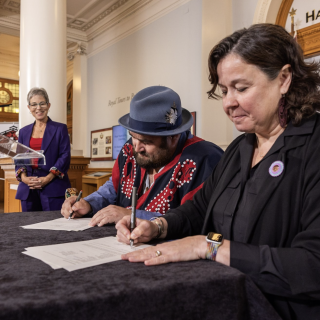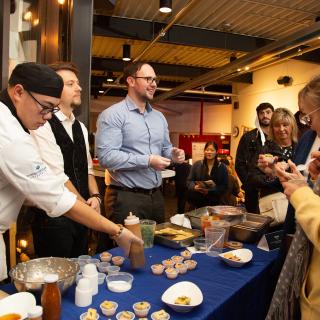A VIU researcher will explore the impact of tourism development and how it relates to community resilience in rural areas across British Columbia. Vancouver Island University (VIU)’s Dr. Patrick Brouder has been named the new British Columbia Regional Innovation Chair (BCRIC) for Tourism and Sustainable Rural Development.
“VIU is excited to have Dr. Brouder join the institution and work closely with community partners to ensure that our track record of supporting rural communities in sustainable tourism is continued and expanded upon,” says Dr. Nicole Vaugeois, BCRIC Emeritus and VIU’s Associate Vice-President of Scholarship, Research and Creative Activity. “His work will create great opportunities for students to work alongside him and gain exposure to the unique needs of rural areas.”
In this endowed research chair position, Brouder will focus on three interrelated areas of innovation in tourism across the province – Indigenous tourism, creative tourism and the evolution of tourism labour markets and entrepreneurship.
British Columbia is a national leader in tourism innovation. Out of Destination Canada’s 205 Canadian Signature Experiences, 53 are in BC. Of the 53, most are in rural communities.
“When we think innovation and new exciting developments we often think of big cities, but when it comes to tourism the rural communities are the leaders,” says Brouder.
The growth of tourism in BC presents a unique opportunity to balance tourism with rural sustainability. Tourism for Community Economic Development and Rural Sustainability (CEDARS) is a long-term research program which engages with a broad group of tourism stakeholders from across rural British Columbia to co-create sustainable tourism development.
The $4-million endowment was established under the BC Leading Edge Endowment Fund (LEEF) in 2008, which includes support and funding from Real Estate Foundation of BC, Innovate BC, Alberni-Clayoquot Regional District. The Chair was held by Dr. Nicole Vaugeois from 2008-2017.
“These research chairs play an important role in fostering innovation, developing communities, and solving real world challenges,” says Jennie Choboter, CFO of Innovate BC. “Especially in rural communities across the province, it’s extremely important to have academic leaders dedicated to issues like sustainability, tourism, and community resiliency. Innovate BC is proud to support this initiative.”
The program aims to examine how rural communities have capitalized on the attractiveness of place to establish a more resilient local economy. This insight is then used to support policy-making at a provincial level to support BC’s diverse rural tourism ecosystem.
“I often tell people that I am a tourism researcher that doesn’t focus on the tourists; I care most about the communities,” says Brouder. “We will be going out into the communities across the province and finding out what their needs are and supporting them.”
For example, there are plans to build a ski resort in Valemount, a village of roughly 1,000 people in east central BC.
“We have a lot of knowledge of what will happen financially when you put a ski resort in a small village, but what we don’t know are the impacts on the community,” says Brouder. “That is where we come in. My role is to discover what the views of the community are about having this development in their town and how we can support the village’s growth in a sustainable way.”
Brouder’s research over the next five years will focus on assisting regional partners in developing tourism for sustainable rural development, engaging in capacity building with future leaders of BC tourism and creating a long-term alliance of BC rural tourism researchers.
-30-
MEDIA CONTACT:
Rae-Anne Guenther, Communications Officer, Vancouver Island University
P: 250-741-6673 l C: 250-619-1088 l E: Rae-Anne.Guenther@viu.ca | T: @VIUNews





